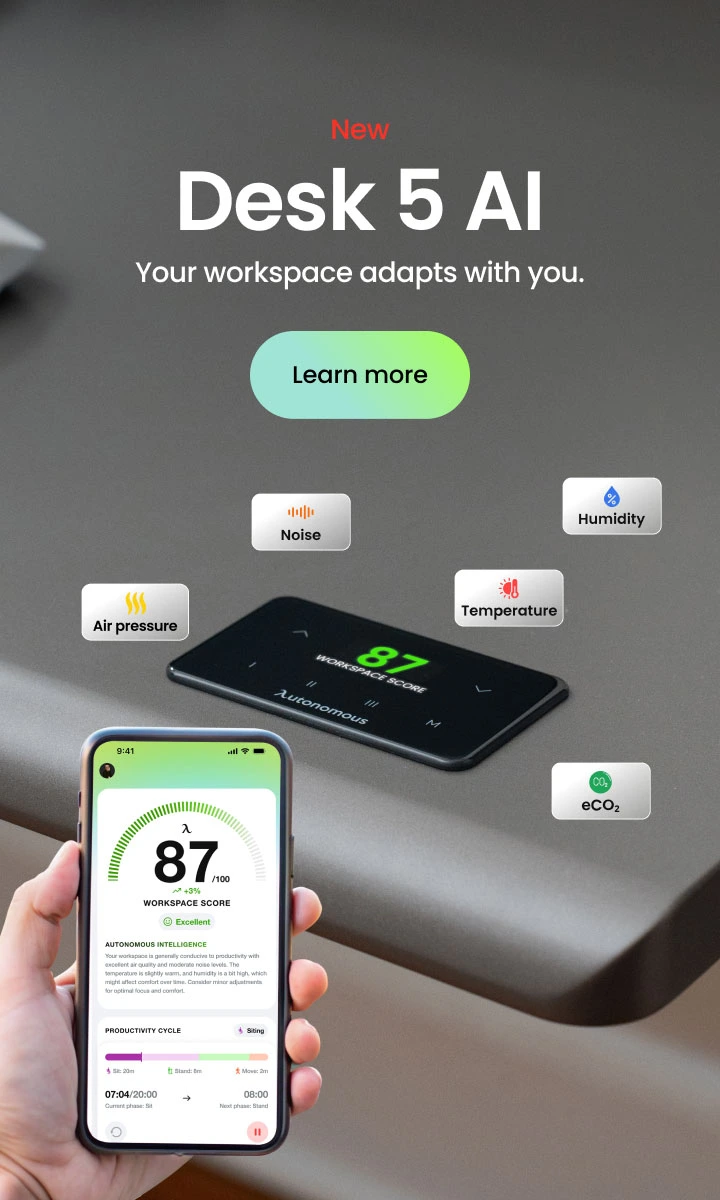5 Free Calorie Counting Apps That Actually Stay Free
Table of Contents
Tracking what you eat doesn’t have to come with a subscription. A free calorie counting app can help you understand your daily intake, build healthy habits, and stay consistent without adding cost or complexity. Today’s calorie tracking apps combine large food databases, intuitive logging, and data-driven insights to support weight goals and overall wellness.
In this guide, we break down which apps are genuinely free to use, how they differ in functionality, and what you can realistically expect without upgrading—so you can choose a tool that fits your lifestyle and works long term.
How We Define a Truly Free Calorie Counting App
Not all apps labeled “free” deliver the same value. Many calorie trackers offer a free download but quickly limit essential features, push subscriptions, or lock progress behind paywalls. To help you choose with confidence, this guide evaluates every free calorie counting app based on how well it supports real users over time, not marketing claims.
- Core calorie tracking must be free
A truly free app allows you to log meals and track calories without restrictions. You should be able to record foods throughout the day, view your daily calorie total, and continue using these features long term. If basic logging is limited or capped, it does not qualify as a completely free calorie counting app.
- No forced subscriptions or hidden trials
Some apps advertise free access but require a credit card or block features after a short trial. We only include options that work without mandatory subscriptions. A free calorie counting app with no subscription should remain usable weeks or months later, not just during onboarding.
- Food database access without paywalls
A calorie counter is only as useful as its food database. Users should be able to search common foods and everyday brands without upgrading. Whether you’re looking for a simple free calorie counting app or an easy free calorie counter app, logging food should never feel gated.
- Long-term usability, not demo access
Free access should support consistency. Apps that gradually remove features, limit entries, or aggressively interrupt usage undermine habit-building. A reliable best free calorie counting app supports daily tracking without changing the rules over time. Like other best wellness apps, effective calorie trackers work best when they support sustained use rather than short-term experiments.
- Essential insights available at no cost
You shouldn’t need to pay just to understand your progress. Daily calorie balance, basic summaries, and simple trends should be visible on the free version. These insights are essential for wellness, particularly when users are trying to understand how intake compares with output over time, such as how many active calories should I burn per day.
- Flexible access across devices
Many users look for a free calorie counting app for iPhone or prefer tools that work across platforms. While ads are acceptable, they shouldn’t block core actions or disrupt logging. Some users may also prefer a free calorie counter app no sign up, which lowers friction and makes starting easier.
By applying these criteria consistently, we filter out apps that only appear free and highlight those that truly respect your time, data, and health goals. The apps listed next meet all of these standards, making them practical, transparent, and worth your attention.

Quick Comparison of Truly Free Calorie Counting Apps
To save you time, the table below compares each free calorie counting app based on the factors that matter most in daily use: whether it stays free without a subscription, how food logging works, the level of setup required, and what each app is best known for. This makes it easier to quickly spot which option fits your habits and expectations.
App | Food Coverage | Sign-Up Required | Best Known For |
Cronometer | Verified, curated foods | Yes | Accurate, well-sourced nutrition tracking |
MyFitnessPal (Free) | Very broad, branded foods | Yes | Fast logging and wide food availability |
Lose It! (Free) | Standard everyday foods | Yes | Simple, motivating tracking experience |
FatSecret | Community-powered foods | Optional | Low-friction setup and barcode scanning |
MyNetDiary (Free) | Standard foods | Yes | Structured daily planning and consistency |
All apps listed above meet our definition of a completely free calorie counting app: you can log food, see daily calorie totals, and continue tracking without being forced into a paid plan. In the next section, we’ll break down each option in more detail so you can decide which one best fits your habits and goals.

5 Best Free Calorie Counting Apps
Below are the five apps that meet our criteria for being truly free. Each option allows consistent calorie tracking without forcing a subscription, making them practical choices for daily use and long-term habit building.
1. Cronometer
Cronometer is often considered one of the most data-accurate options among any free calorie counting app, making it especially appealing to users who value precision and transparency. On the free version, you can log meals, track daily calorie intake, and access a robust food database without being forced into a subscription.
What stands out is the way Cronometer presents information without distraction. Daily calorie totals, nutrient breakdowns, and progress summaries are easy to find and consistent over time, which helps users better understand how intake relates to overall calorie expenditure throughout the day. The interface may feel more technical than other options, but that precision supports users who want clarity and reliability rather than simplification. It’s especially well suited for those who prefer a measured, data-first approach to tracking and don’t mind spending a bit more time reviewing details.
While it does require an account to save progress, the free plan remains fully usable long term, which qualifies it as a free calorie counting app with no subscription for core tracking needs. For users who want a free calorie counting app with no subscription that prioritizes quality data and long-term wellness, Cronometer is a strong choice, including as a free calorie counting app for iPhone.
Pros
- Highly accurate, verified food data
- Core calorie tracking stays free long term
- Clean, distraction-light interface
Cons
- Requires account sign-up
- Interface may feel technical for beginners
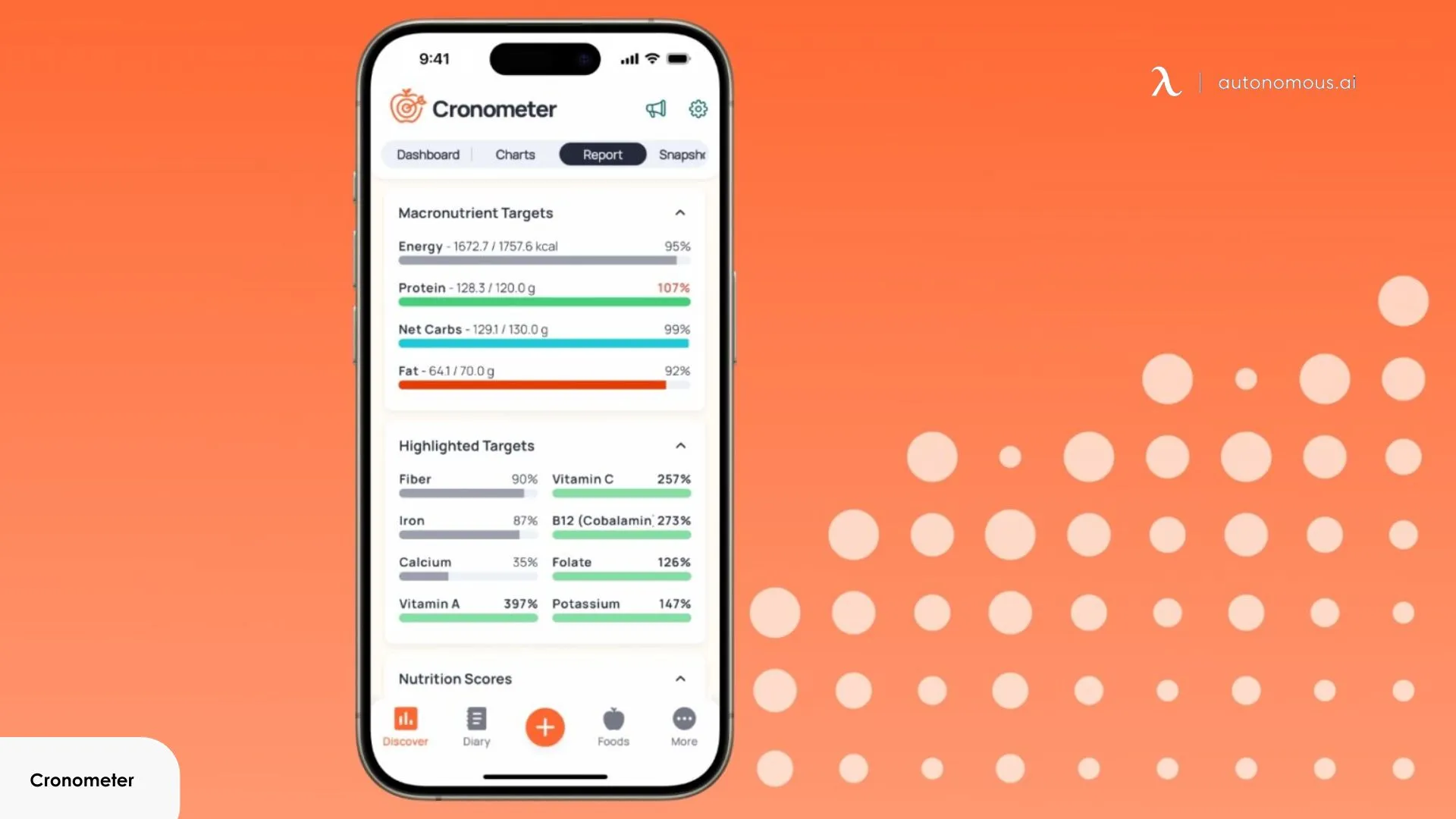
2. MyFitnessPal
MyFitnessPal remains one of the most familiar options for calorie tracking and is widely used, especially by first-time users. Its biggest strength is scale: the free version gives access to a very large food database that includes home-cooked meals, restaurant items, and packaged foods, making everyday logging fast and flexible.
The app favors speed over depth. Searching, saving meals, and checking daily calorie totals all happen quickly, which helps users stay consistent when life gets busy. While premium features exist, the core experience still works as a free calorie counting app with no subscription, making it a practical option for users who want an easy free calorie counter app with minimal setup. Some users pair calorie tracking with strength-focused training apps; a separate Fitbod app review looks at how workout planning fits into a broader fitness routine.
Pros
- Extremely large and diverse food database
- Fast logging with saved meal shortcuts
- Beginner-friendly interface
Cons
- Ads and upgrade prompts are frequent
- Some advanced insights require premium
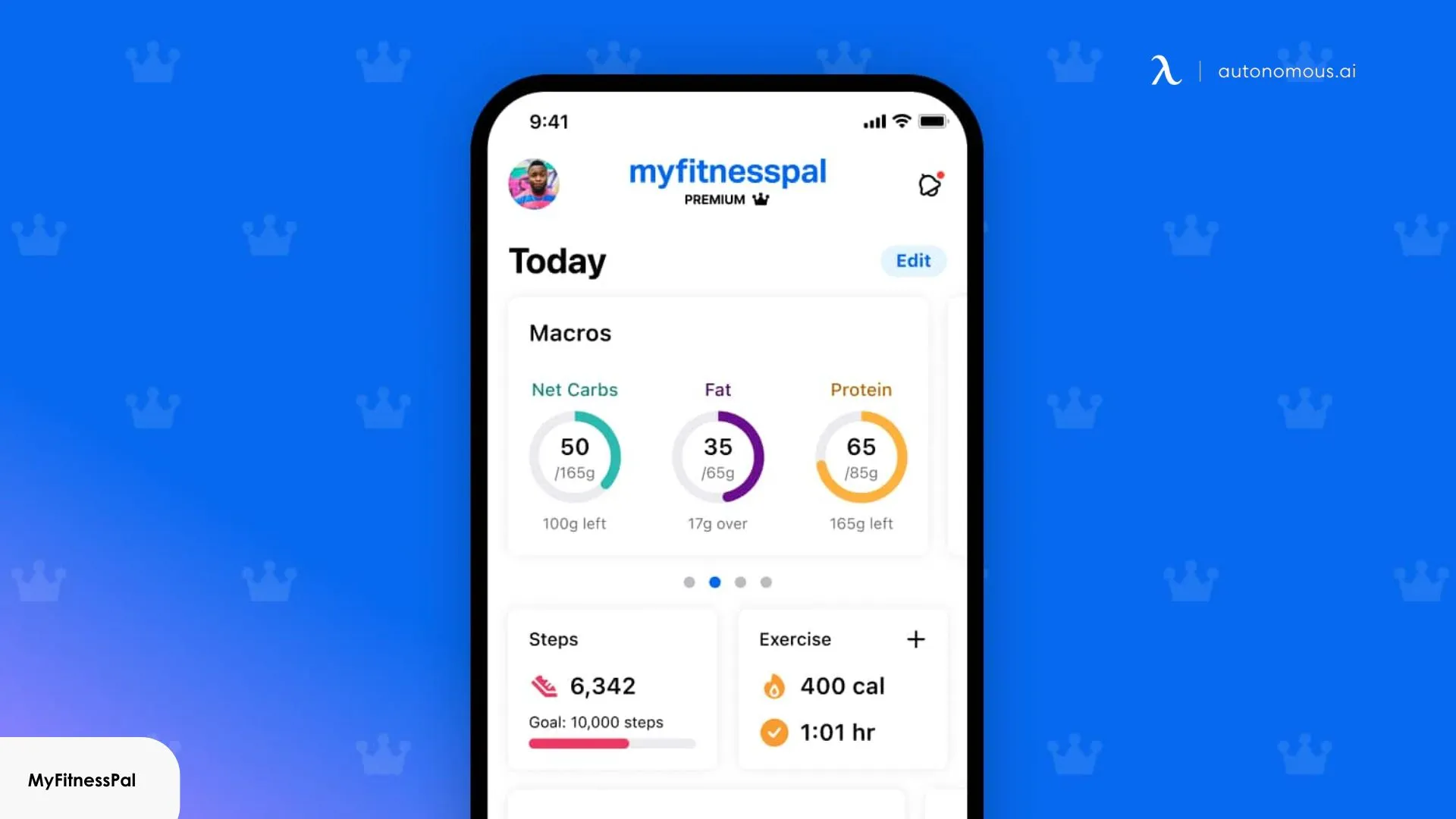
3. Lose It!
Lose It! is built around approachability and momentum. Rather than leaning into detailed nutrition breakdowns, it focuses on making calorie awareness feel simple and achievable. As a free calorie counting app, it encourages consistency by reducing friction—helping users stay engaged without feeling overwhelmed.
The free version emphasizes clear daily calorie limits, visual progress cues, and a clean interface that’s easy to navigate from day one. Food logging feels lightweight and intuitive, which makes Lose It! a good fit for users who want routine support rather than deep analysis, especially when working toward a sustainable calorie deficit over time.
While premium features exist, the core experience remains usable over time. Daily tracking continues to work without payment, making Lose It! a practical option for those who value simplicity, encouragement, and a low-friction experience, especially on iOS. Other fitness apps, including the Gravl app review, take a more training-centric approach and are often used alongside calorie tracking rather than as a replacement.
Pros
- Clean, beginner-friendly design
- Core calorie tracking stays free
- Easy to use for daily habit building
Cons
- Limited nutritional detail on free plan
- Some features reserved for premium
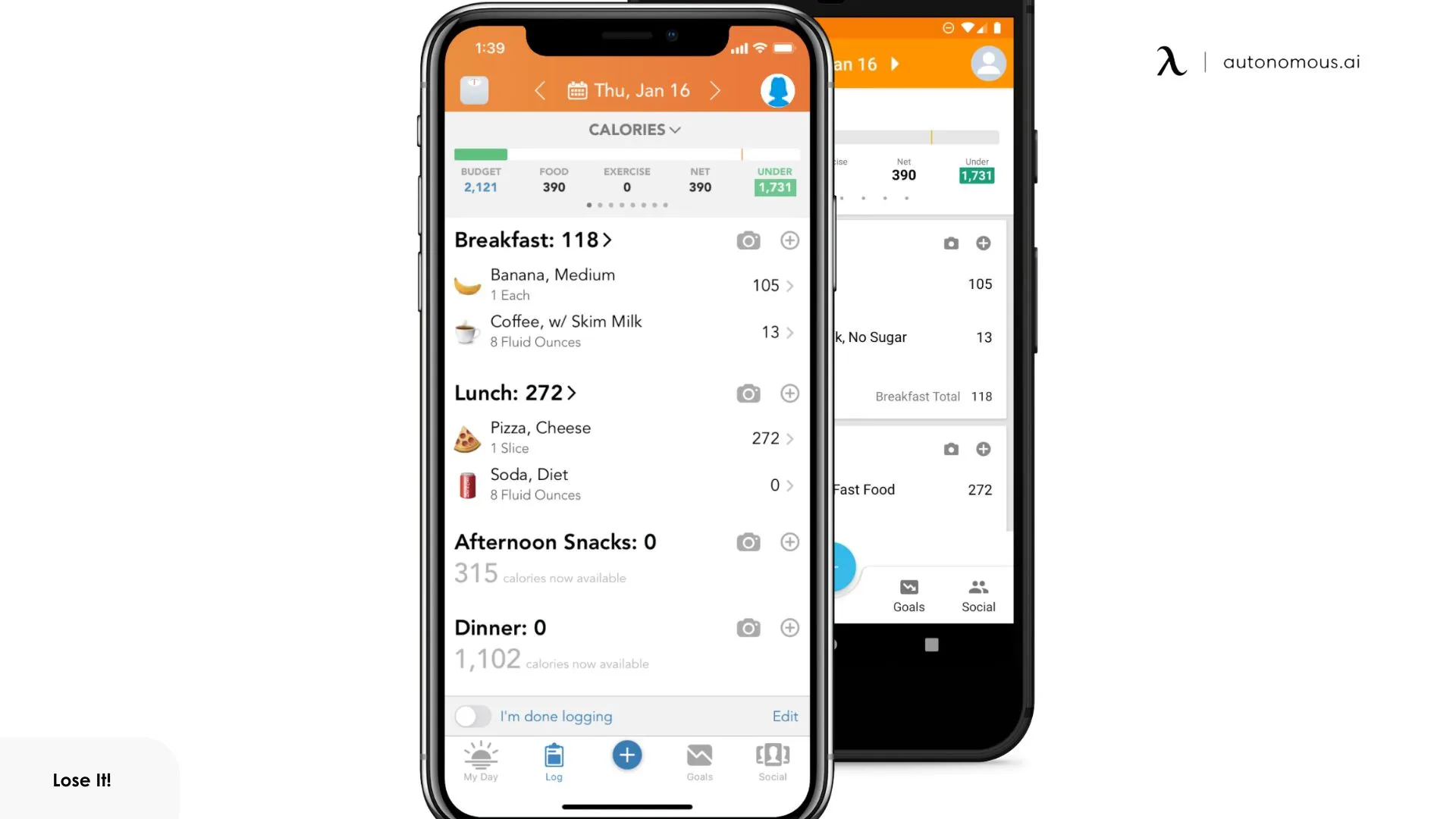
4. FatSecret
FatSecret stands out for how open and low-friction it feels compared to most calorie tracking apps. One of its defining features is that users can start logging food with minimal commitment, account creation is optional, and core tracking works without forcing sign-ups. This makes it especially appealing for people who want to try calorie tracking without immediately sharing personal data.
The app also leans heavily on a community-powered food database. Instead of tightly controlled entries, it allows a wide range of foods to be logged quickly, which works well for everyday eating and non-repetitive meals. This flexibility can be especially useful for users evaluating calorie restriction for weight loss without following rigid meal plans. Barcode scanning and basic meal logging remain available in the free experience, keeping tracking practical without constant upgrade pressure. While the interface is utilitarian rather than polished, FatSecret prioritizes access and continuity over design refinement.
Pros
- Optional account creation lowers entry barrier
- Barcode scanning available without upgrade
- Core tracking usable without subscription pressure
Cons
- Community-based data can vary in accuracy
- Interface feels dated compared to newer apps
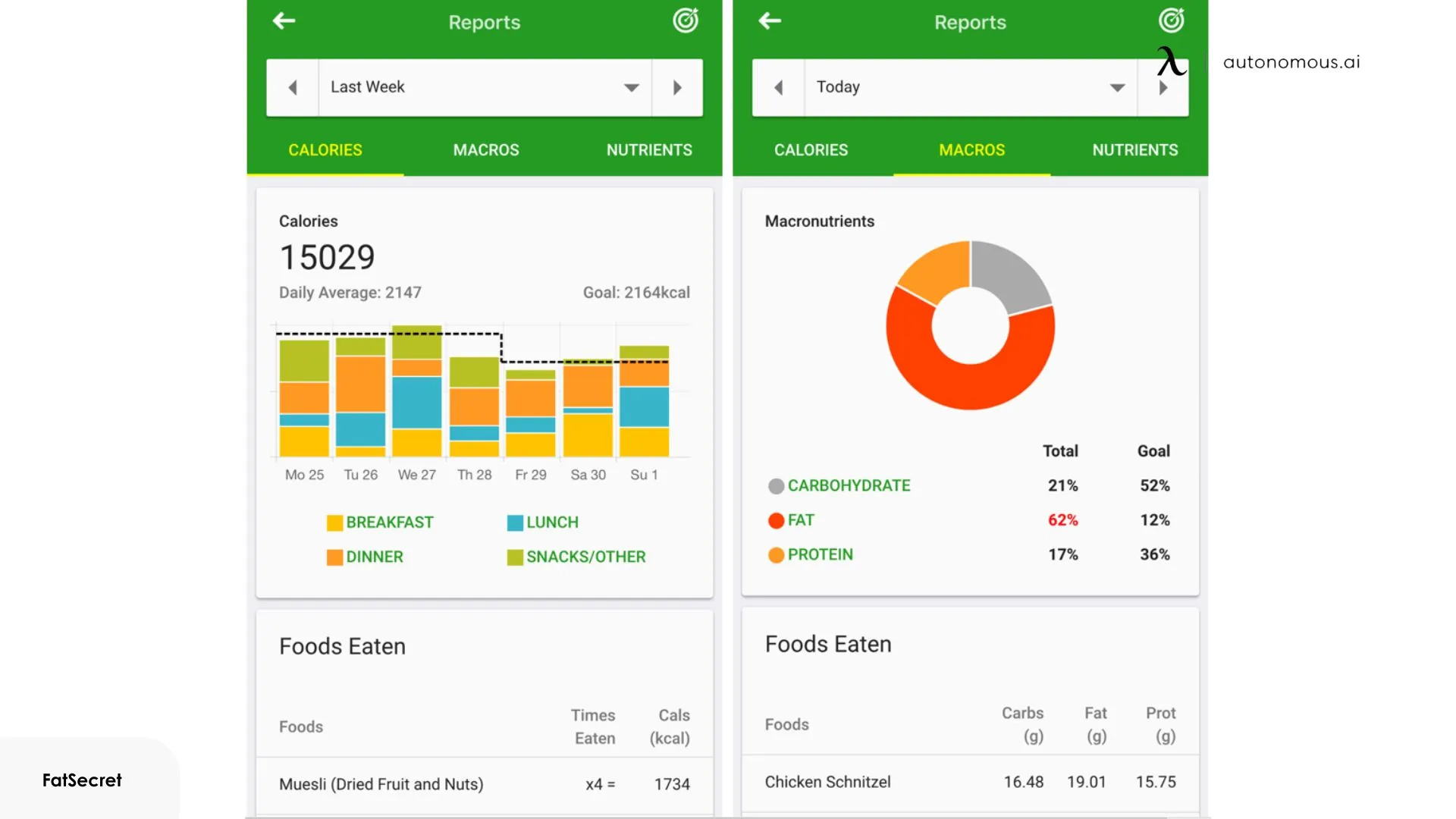
5. MyNetDiary
MyNetDiary is built for users who want structure without feeling constrained. Its standout feature is how it guides daily tracking through clear prompts and organized meal flows, helping users stay consistent even when routines change. Instead of relying on sheer database size or motivation cues, it focuses on making each step of logging feel orderly and predictable.
The app provides a clean breakdown of daily calories and meals, with a layout that emphasizes planning as much as tracking. This makes it especially useful for users who prefer a sense of control and visibility throughout the day rather than logging everything at once. Users who prefer structured guidance beyond calorie planning may also be interested in approaches discussed in the MyFitCoach app review, which focuses more on coached routines.
Pros
- Structured, step-by-step logging flow
- Clear daily layout that supports planning
- Stable free experience without sudden lockouts
Cons
- Some customization options require upgrade
- Less flexible for quick, on-the-go logging
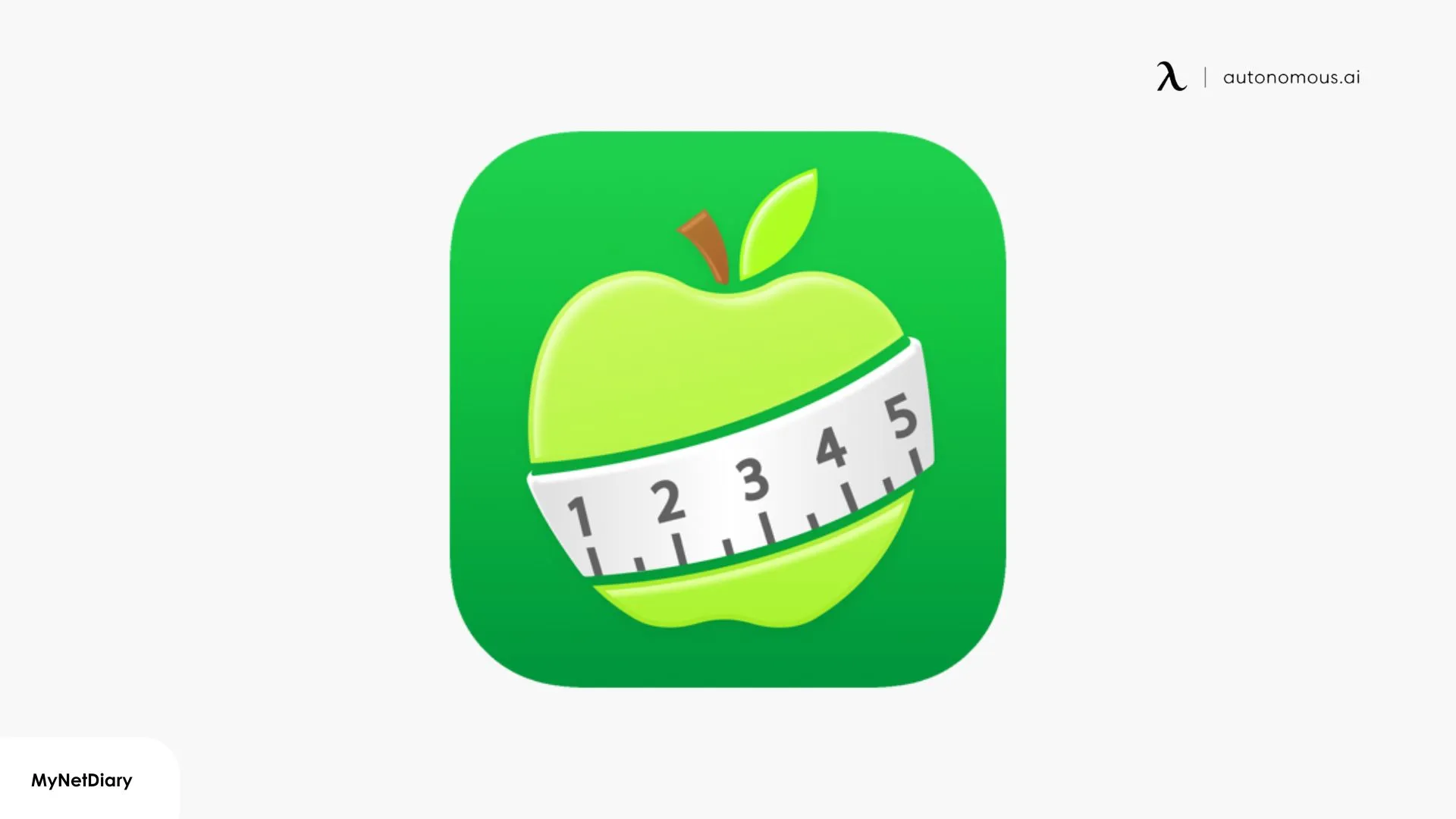
Taken together, these apps show that the best free calorie counting app doesn’t need to rely on trials or constant upgrades to be useful. Each option takes a different approach, whether through accuracy, simplicity, flexibility, or structure, but all support consistent calorie tracking without added pressure. The key is choosing the one that aligns with how you prefer to log, review, and stay aware of your daily intake.
How to Choose the Right Free Calorie Counting App
Choosing a calorie tracking app is less about finding the most features and more about finding the right fit for your habits. The best results come from using an app you can return to consistently—one that supports awareness without adding friction. The guidance below focuses on how different app approaches align with different user needs.
- Consider how much detail you want to see
Some users prefer a more data-driven experience, with clearly structured numbers and summaries. Others feel more comfortable with a simpler view that highlights daily calorie totals without too much breakdown. If you enjoy reviewing information closely, a more technical option may suit you. If you want something quick and readable, a simpler interface may work better.
- Think about your tolerance for setup and structure
Apps vary in how much structure they impose. Some guide you step by step through meals and daily planning, while others let you log freely with minimal setup. If you value routine and predictability, a more organized flow can be helpful. If flexibility matters more, a lighter setup may make tracking easier to maintain.
- Decide how much friction you’re willing to accept
A free calorie counting app with no subscription should remain usable without constant interruptions. Ads are common, but they shouldn’t disrupt logging or daily review. Some users also prefer options with fewer barriers to entry, such as minimal onboarding or no immediate sign-up, especially when trying an app for the first time.
- Match the app to your lifestyle, not an ideal routine
Consistency matters more than perfection. An app that fits into your real schedule—busy days, eating out, or irregular meals—is more valuable than one that looks powerful but feels hard to use. The best free calorie counting app is often the one that feels easiest to come back to, even on less structured days.
- Re-evaluate after a few weeks of use
Your needs may change over time. What starts as an easy free calorie counter app may later feel limiting, or a more structured tool may begin to feel supportive as habits form. Pay attention to whether the app continues to feel helpful rather than restrictive.
Choosing the right tool is a personal decision. A simple free calorie counting app that fits naturally into your routine can support long-term awareness and healthier habits far more effectively than a feature-heavy option you rarely open. Different apps such as the BetterMe app review follow a more program-based wellness model, which differs from the flexible, self-directed approach of calorie counting apps.

FAQs
Is there a free calorie counting app?
Yes. Several apps allow users to log food, track daily calorie intake, and view basic summaries without paying or starting a trial. The key is choosing an app where core calorie tracking remains usable long term, not just during onboarding.
What's the best free app for calorie counting?
There is no single best option for everyone. The best free app depends on whether you value accuracy, simplicity, speed, or structure, and whether the app remains usable without requiring a subscription.
Is there a free calorie counter by picture?
Some apps offer photo-based food logging, but this feature is usually limited or locked behind paid plans. For consistent and reliable calorie tracking, most free apps still rely on manual food logging rather than image recognition.
Is there a completely free calorie counting app with no subscription?
Yes, a few apps offer calorie tracking without requiring a subscription. These apps typically support meal logging and calorie totals indefinitely, though they may include ads or optional upgrades.
Is there a free calorie counting app with no sign up?
Some apps allow limited use without creating an account, especially for basic calorie logging. However, saving progress across days usually requires sign-up, even in a free calorie counting app.
What is the best free calorie counting app for the iPhone?
Several free calorie counting apps are well optimized for iPhone and iOS. The best option depends on whether you value clean design, quick logging, or more structured daily tracking.
Is a free calorie counting app accurate?
Accuracy depends on the quality of the food database and how foods are logged. Apps that use verified data sources tend to be more reliable than those relying heavily on user-generated entries.
Can a free calorie counting app work long term?
Yes, as long as the app keeps core features available without forcing upgrades. A free calorie counting app that supports long-term use is often more valuable than one with advanced features locked behind a paywall.

Conclusion
Choosing the right calorie tracking tool is about finding something you can use consistently, not chasing the most features. A well-designed free calorie counting app should make it easier to stay aware of your eating habits without adding pressure, complexity, or hidden barriers. For readers also exploring broader health or fitness-focused tools beyond calorie tracking, the Lazyfit app review provides additional perspective on how app-led guidance can support routine building alongside nutrition awareness.
While calorie tracking focuses on physical intake, some users may also explore adjacent wellness tools such as the Liven app review and Endel app review for mental focus, stress reduction, and habit support. Together, these tools reflect a broader approach to wellness that balances physical awareness with mental well-being, without requiring upgrades to deliver value.
Spread the word
.svg)


